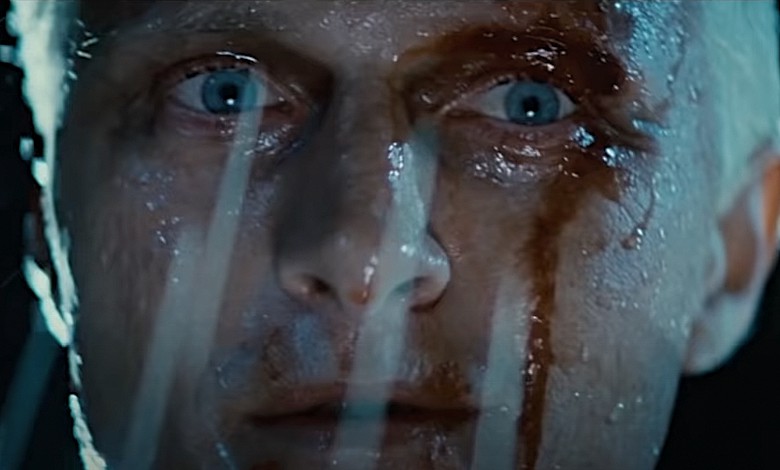‘Blade Runner’ – Tears in Rain for a Lost Generation
Rutger Hauer's timeless performance speaks to an essential ache within us

“I’ve seen things you people wouldn’t believe. Attack ships on fire off the shoulder of Orion. I watched C-beams glitter in the dark near the Tannhauser gate. All those moments will be lost in time, like tears in rain. Time to die.”
As I commemorate what would have been my father’s birthday today and his legacy left for me, the haunting words of Rutger Hauer in Ridley Scott’s 1982 masterpiece “Blade Runner” resonate deeply.
These words, now forever tied to Hauer’s passing, serve as a poignant reflection on the timeless nature of his performance and the profound themes the film explores.
In 2019, as Hauer’s departure prompted a reconnection with the rain-soaked landscapes of “Blade Runner,” an innate timelessness became evident despite the years that separated us from the film’s debut.
Attempting to grasp this sentiment, I penned an earlier article, “Tears in Rain: Blade Runner as Theo-Drama,” endeavoring to decipher the underlying message.
Derived from Hans Urs von Balthasar‘s theological exploration, “Theo-Drama” propels us to reevaluate traditional pursuits of “the good, the true, and the beautiful.”
In this view, beauty assumes primacy, asserting that authentic goodness and truth inherently possess profound beauty. This essence encapsulates “Blade Runner’s” dystopian imagery, initially unattractive yet irresistibly compelling.
The film’s exchanges between Hauer’s Roy Batty and his creator, Tyrell (Joe Turkel), encapsulate beauty and despair. Batty, a Replicant grappling with a truncated lifespan, confronts Tyrell with a raw entreaty: “I want more life, father.”
This moment of profound desperation reverberates within us all.
My viewings of “Blade Runner” stirred personal contemplation. Those scenes, steeped in melancholy, spoke to the characters and my yearning for transcendence.
In a world seemingly detached from divinity, I wandered in pursuit of meaning amid life’s hollowness. Batty’s plea resonated as a reflection of my inner longings.
Hauer’s light might have dimmed, yet his portrayal perpetually illuminates “Blade Runner” as a theo-drama, diving into the depths of human existence.
It unveils our darkest moments, prompting a realization that we are mere threads within a grand narrative, an intricate drama that stretches beyond mortality.
In a contemporary landscape often distant from concepts like “the good, the true, and the beautiful,” Blade Runner’s scenes are remembrance of something more. They resurface our spiritual quests when we turn away from the divine, submerged in a realm of vacuous ideologies and superficial pursuits.
Hauer’s embodiment of Roy Batty mirrors our struggles and yearnings for depth. His legacy persists in his artistry and the profound message he conveys through the film.
However, some interpretations might view “Blade Runner” as a descent into a void, an acknowledgment of humanity’s bleak destiny in a world stripped of genuine connection and meaning.
My perspective contends that the film’s message is a cautionary tale, urging us to forge our paths back to authentic purpose.
In the absence of Hauer, we both lament his absence and celebrate his indelible imprint on “Blade Runner’s” legacy. His passing makes us ponder his performance and the film’s resonance.
Just as Batty’s plea mirrored our own soul’s yearning, the overarching narrative of “Blade Runner” reminds us of a patiently waiting God. Essentially, it’s a return, recognizing our innate need for the transcendent.
Hauer’s echo persists amidst rain-soaked atmospheres, encapsulated in the enduring essence of “Blade Runner.” It beckons us to seek beauty even in the bleakest junctures, to recognize our roles in our narrative guiding toward eternal truths.
As we bemoan the fading memory of this film, we commemorate the work’s lasting influence as a reminder that even amid rain and tears, an eternal direction still points us homeward.
In my case, to the memory of my Dad.
I’m afraid, given present Hollywood, the ability to grant the poor soldier’s request, like many individuals, to be seen as more than ephemeral, or something transactional or made of meaningless group identity, but reborn out of one worthy of honor.
Without fighting for more life, it might certainly be a Time to Die.
Editor’s Note: The exact phrase from the film is “Tears in rain.” An earlier version of this article had an extra “the” included.
Robert Orlando, B.F.A., School of Visual Arts, is an award-winning author, filmmaker, and entrepreneur who founded Nexus Media. As an award-winning writer and director, he has released more than a dozen movies, including the thought-provoking documentaries “Silence Patton,” “The Divine Plan” and “Trump’s Rosebud.” His latest book and film is “The Shroud: Face to Face,” hitting bookstores and theaters later this year.
For more insights into Orlando’s work, visit robomantix.com.

Amen.
Amidst the frantic chases and the rain soaked city, along with the blank cyber looks, Hauer delivers those heart-felt lines.
It caught me off guard and felt like a sucker punch about What Really Matters. This life isn’t about living a digital one, with “repurposing” or fake smiles or CGI everything. And it’s not about craving approval from Social Media.
Rest in peace, Rutger. Thank you for waking us up to reality again.
Amen.